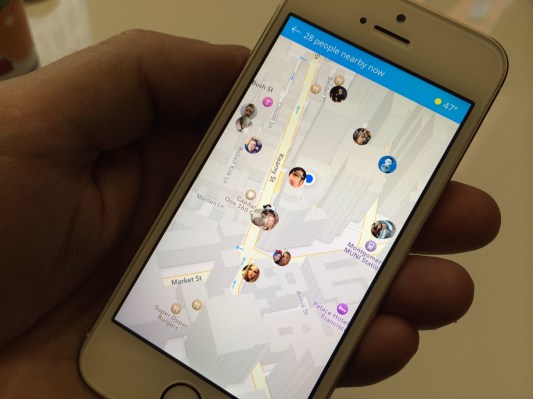Pinterest today said it was acquiring the team behind Math Camp, the creators of Highlight, and will be sunsetting its applications Roll and Shorts in the next few weeks.
The acquisition shouldn’t seem like a twist — Highlight captured a ton of buzz at SXSW a few years ago, but the reality is Highlight and Math Camp’s later applications never really blew up in such a way to make them necessary social utilities. Simply notifying users about other people nearby turned out to be a limited use case that was a product of the density of people and a willingness to open up your current location to the rest of the world. The good elements inevitably found their way into other applications, like sharing locations in iMessage, but it was a so-so product for an open-minded dense conference like SXSW and not much outside that.
Highlight also ran into a slew of problems like draining a user’s battery life, and was eventually taken down in 2015. In the end, it couldn’t find mass popularity once SXSW ended, and it seemed inevitable that the company would have to go in a different direction regardless of the promise the technology showed. So the company made a pivot earlier this year into releasing a couple of photo-sharing applications, Roll and Shorts (which allowed you to share your camera roll). But those also never really caught on and became breakout successes.
Most of the team is joining Pinterest, including CEO Paul Davison, who will be working across multiple areas of Pinterest. It’s an interesting buy for Pinterest, but not entirely unexpected. Pinterest’s core competency is discovering new content, and the Math Camp team launched with an app initially created around the hope of discovering people around you. Those are hard problems that require understanding the nature and behavior of a user and diving deep into a diverse array of content that might match up with those attributes.
Given that Shorts launched in March, this is kind of an abrupt end to Math Camp. The startup raised $5.5 million in two rounds of financing over its five-year life. But much like other flash-in-the-pan apps like Secret, which gathered a ton of buzz in Silicon Valley, it couldn’t break into the mainstream and offer some kind of core use case that would become a necessity every day.
As Pinterest improves its discovery products, the overall Pinterest experience should improve. That, in turn, leads to higher engagement, and a bigger opportunity to monetize its user base by chasing down users with content that they might not even realize they thought would be interesting. It’s a heavy-duty problem, and an area where Pinterest has been aggressively investing.
That includes improving the traditional discovery experience and also introducing powerful tools like visual search — which gives users a way to look for products by just selecting things that pop up in pictures. In the future, users should even be able to do that with a photo they just took, based on what Pinterest showed last month. All of this requires a group of people who understand the underlying connections that various nodes have between each other.
Some of the work done on Math Camp’s other apps will be open sourced in the form of a range of libraries and frameworks, much in the same way Fleksy’s keyboard technology was open sourced for developers when Pinterest acquired it earlier this year. The company has been pretty busy acquiring talent in the past couple of months, but that’s important for a growing company to bring in outside expertise. Acquihires give companies options to buy a group of people with a core competency that already have experience working together on a product.
